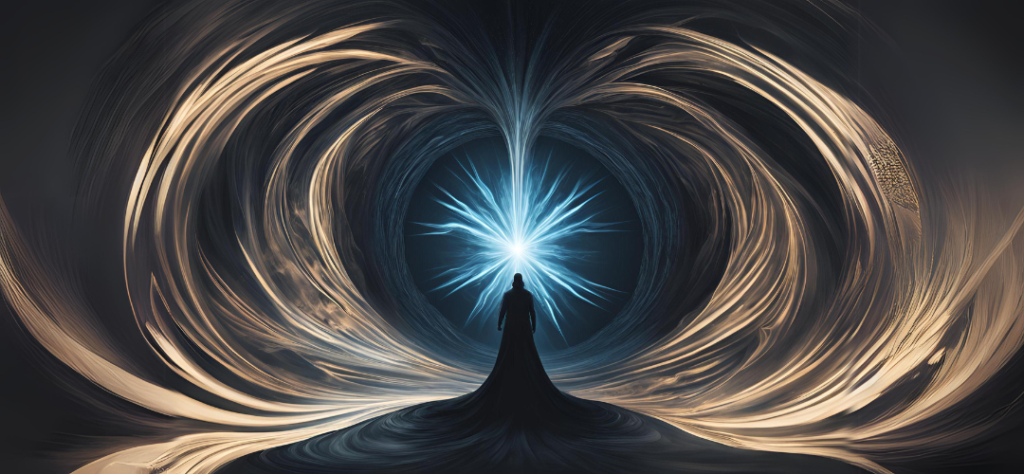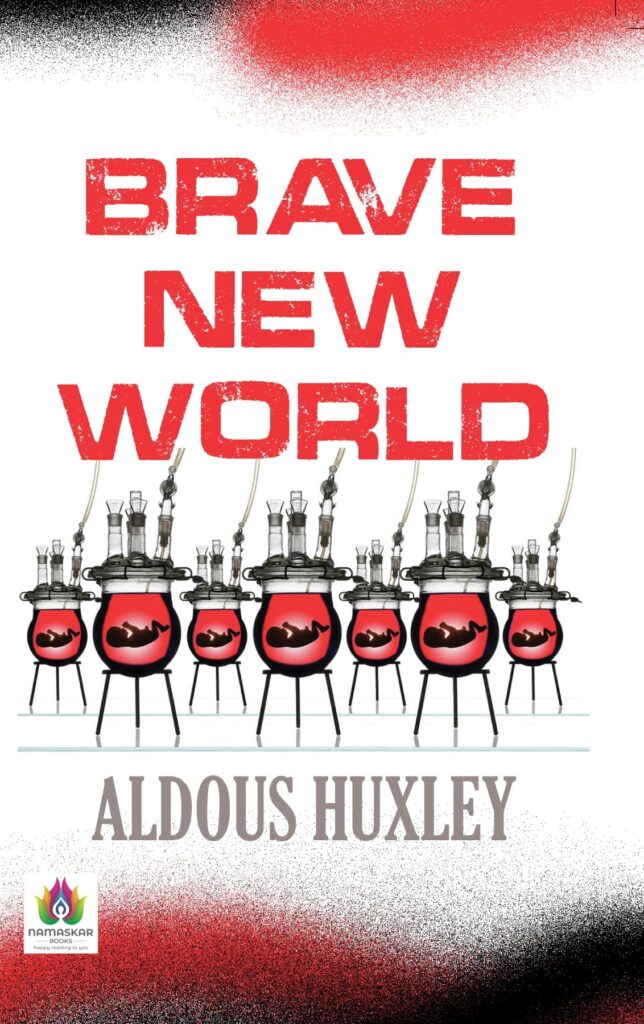
The Dark Allure:
Obsession and Addiction in Fantasy and Sci-Fi
Fantasy and Science Fiction authors often bring to light the darkest corners of the human psyche through tales of obsession and addiction. The more common physical and behavioral additions of alcohol, drugs, gambling, or pornography are too immediate to the vast all-consuming realism these authors develop. SFF narratives lure us into worlds where power corrupts, desires consume, and knowledge comes at a perilous cost. From the treacherous pull of the One Ring in Middle-earth to the life-extending, addictive spice of Arrakis, these stories reveal the profound and often devastating effects of unchecked ambition and desire. In this blog we will delve into these gripping sagas, to remind ourselves of the fine line between aspiration and obsession, and the haunting allure that can lead even the noblest of heroes to their downfall. Let’s explore the irresistible and perilous attractions that shape some of the most compelling characters and plots.
“He who controls the spice controls the universe.” Frank Herbert’s novel Dune
This quote underscores the immense power and allure of the spice, reflecting its critical role in the political and social structures of the Dune universe, as well as the lengths to which individuals and factions will go to control it. The spice is not only a valuable resource, but also a symbol of addiction and the corrupting influence of power.
“The Dragon Reborn is our only hope, and he is our doom.” Robert Jordon’s Wheel of Time series.
“One Ring to rule them all, One Ring to find them, One Ring to bring them all, and in the darkness bind them.” Lord of the Rings, J. R. R. Tolkien.
“We don’t need other worlds. We need mirrors.” Solaris by Stanislaw Lem.
“Truth could be the most deadly weapon of all.” The Sword of Shannara by Terry Brooks.
These quotes encapsulate the dark allure and the potentially destructive power that these objects or concepts hold over the characters and worlds in their respective stories. And there are so many more. Think of virtual reality in The Matrix (written by Wachowski) or the obsession with power, the Iron Throne, and the intricate political games in Westeros (Song of Ice and Fire, George R R Martin). Or it could be the addictive nature of Allomancy (Mistborn, by Brandon Sanderson). In Brave New World by Aldous Huxley, people develop an addiction to superficial happiness and escapism. In Altered Carbon, by Richard K. Morgan, addiction is immortality through body-swapping technology.
Regardless of the allure, the resulting obsession takes over and becomes the novel’s key issue. The Ring exerts a malevolent influence, corrupting those who desire its power. You wouldn’t have a single hobbit hunted and striving to cross monster-filled Middle-earth to Morador without the ring. The Ring’s influence corrupts even the most well-intentioned characters, illustrating how the desire for power can lead to moral degradation and ruin.
The Arrakis spice grants extended life and prescient abilities, but is highly addictive. And the royal houses exterminate each other to gain control. Characters become dependent on spice, and entire political and economic systems revolve around its control. The addictive nature of the spice mirrors the addictive nature of power, leading to destructive political machinations and personal corruption.
The protagonist, Rand al’Thor, grapples with the immense power and responsibility of being the Dragon Reborn, leading to paranoia, isolation, and moments of extreme violence. His struggle to control this power and fulfill his destiny consumes him. The burden of power affects Rand’s sanity and relationships, showing the heavy toll that comes with great responsibility and control.
The Sword of Shannara reveals harsh truths, driving characters to confront their deepest fears and weaknesses. This can lead to madness and self-destruction. The quest for the Sword involves significant personal sacrifices and ethical dilemmas, highlighting the dangers of seeking power without considering its consequences.
The Solaris Ocean manifests physical forms of human thoughts and memories, leading to obsession, guilt, and existential crises among scientists. The pursuit of understanding and control over Solaris leads to existential crises and psychological breakdowns, illustrating the peril of trying to dominate the unknown.
The pursuit of the Iron Throne leads to betrayal, murder, and war. Characters like Cersei, Daenerys, and Stannis become increasingly ruthless and morally compromised. The struggle for the throne leads to widespread violence, betrayal, and chaos, showing how the addictive nature of power can destabilize entire societies.
Neuromancer characters become addicted to the digital world and cybernetic enhancements, leading to a loss of humanity and moral ambiguity (William Gibson). The addictive nature of technology blurs the lines between reality and virtual reality, raising questions about identity and the human condition.
Using Allomancy (Mistborn) grants power but can become addictive. Characters like Vin and Kelsier struggle with the moral implications of their abilities. The pursuit of power through Allomancy involves significant personal and ethical challenges, highlighting the corrupting influence of such abilities. “There has to be balance, Vin,” he said quietly. “Somehow, we’ll find it. We’ll make it so that you can fight without being cruel. So that you can love without being weak.” The Well of Ascension in the Mistborn series.
In Brave New World, the populace becomes addicted to the drug soma, which ensures compliance and superficial happiness, suppressing true emotions and critical thought. The addictive pursuit of a stable and content society comes at the cost of individuality and genuine human connections, raising ethical concerns about the nature of happiness and freedom. “But I don’t want comfort. I want God, I want poetry, I want real danger, I want freedom, I want goodness. I want sin.” John the Savage, Brave New World.
In each of these iconic novels, the obsessive hunt for power, control, and forbidden knowledge ripples through the lives of all characters, corrupting and influencing them in profound ways. These quests highlight the destructive potential of unchecked ambition and desire. Whether it’s the relentless pursuit of the Iron Throne in Westeros, the digital temptations in the cyberpunk realms, or the psychological depths explored in Solaris, the theme remains consistent: obsession not only consumes the seeker but also casts a dark shadow over those around them. These narratives serve as a reminder that the relentless pursuit of power and control can have devastating consequences, forever changing the fabric of their worlds, and highlighting the fine line between aspiration and obsession. This invites us, as readers, to reflect on the nature of our own desires and the potential consequences they can have on our lives and the lives of others.
By exploring these intense and often dark aspects of human nature, the authors create rich, multi-layered narratives that engage readers emotionally and intellectually. Characters grappling with obsession or addiction are often deeply flawed, making them relatable and compelling. Readers become invested in their journeys, struggles, and transformations. The personal stakes for characters, whether it’s Frodo’s burden with the One Ring or Rand’s struggle as the Dragon Reborn, make readers care deeply about the outcomes. The consequences of these obsessions often extend beyond individual characters to entire societies or worlds, creating a sense of urgency and importance that keeps readers engaged. Characters often face difficult moral and ethical decisions, prompting readers to consider what they would do in similar situations. This can lead to a deeper engagement with the story. Characters often face difficult moral and ethical decisions, prompting readers to consider what they would do in similar situations. This can lead to a deeper engagement with the story.
For example, Stannis Baratheon, one of the claimants of the Iron Throne in A Song of Ice and Fire, faces numerous morally ambiguous decisions throughout the series. One of the most striking moments is his decision to sacrifice his daughter, Shireen, to the Red God, R’hllor, to gain favor and power to win the war.
I also have an obsession with my antagonist Ssiram the Snake King. Humans destroyed his family, and he now seeks to kill all. He reconstructs his identity through his loss and hatred, finding a new sense of self in his quest for retribution. He seeks emotional relief from his grief and anger, believing that his actions of killing will finish his torment.
Here is a brief sample:
There he was, before her in golden glory, his scales and gold feathered skin one giant crescendo of noise as the feathers hit against themselves. Somehow, with just her and him, it was musical and Trena blinked at the song of his movements.
She stood still in the open, her hands raised as he charged. With less than twenty feet between them, they locked eyes. Trena immediately projected the memory vision of the initial pain she’d read from him earlier. The crushing rock that fell on them destroyed his eggs. He howled and stopped his attack. His clawed forearms clutched his head, not much different from the human response to remembered agony. His choked cries echoed throughout the cavern. Trena changed her memories to the village children playing in the fields of her home, their childish laughter and shouts of fun and games. The sounds of the TK spread over the higher hills when the wind blew, rocking them from root to tip to whistle from one end to the other, like a vast sea of voices murmuring with happiness. She showed the thunderstorms and the rain pelting the ground, rivers of water, and flashes of lightning. And she showed the sun soon to follow, shining upon the dew-graced, damp, lands, its beauty enhanced with the warming gaze. Then she shared a memory of nests in the high rock land. Abandoned and fallow of any bird. She showed the Ipeyo people planting in the tilled fields far below, the sheep resting in the mid-grounds, the white clouds. She even shared the stars she’d spent countless nights under, the patterns she knew.
“Stop.” His voice broke the trance she’d fallen into, reminding her of homesickness she once thought she’d never survive, but now only carried a small longing for a place she’d sometimes found happiness and loved to share. Even with a snake creature.
“I am not here to harm you.’
“And yet you invade my thoughts. What are you doing here?” His spiral eyes glared.
“I am here to… make a promise,” Trena recalled the destiny once given to her a year ago back in Star Village. At the time she did not understand. But now, many things stood out to her. She could feel a purpose within. And she was truly serving Cavel a higher one because he gave her this gift. To be here right now could not be a mistake.
“Did someone send you to find me?” the snake hissed and growled.
Trena did not know how to respond to that question. With her skill, reading so many memories of people and seeing so much damage, anger, and vicious history, she knew she was the one who could understand the Snake King if he let her try. But she didn’t feel like that was the answer.
I am here because of my people, the Ipeyo. With my faith in Cavel, the Father of Horses, our patron god, they have sent me to help us both.”
“How can this be? My spawn died. He choked and hissed, his body writhing, his wings pressed together behind his back, questioning. The dissonant tone of his body made Trena turn her head to the side with unease.
His eyes narrowed at her avoidance.
“Who are you?”
Trena looked back at him. “I am Trena, Cavel’s faithful warrior, and shepherdess of the Ipeyo people.”
“I am Ssiramraquatripa, se Shatrquatrosoa, se Shaboita, air serpent of the Prinitas Lands. You might call them Da Shad Borakus.”
Trena recognized the last part, and it amazed her. “I’ve heard of these lands. The wars are there.”
“Yes. Da Shad was once…as beautiful as those places you showed me.”
Her voice got taken as she spoke with unfamiliar knowledge. “Has the passing of the shadows brought your wings into winds too shallow?”
Ssiramraquatripa stared at Trena, a quick double-flicker of his tongue before he answered.
“I feel a power rising within you.”
Trena took a step closer of her own accord. “It may be. I am, at my heart, a believer. It is my god Cavel who gifted me my memory sight, which led me across far lands, across deep waters, and still yet to be here, at this moment, to find you.
Trena felt her hand lifting out to reach toward the air serpent. A light surrounded her arm. As her fingertips touched the creature, the light moved from her to spread across its body. Trena watched with fascination as the gaping wound from the removed spear folded and sealed with healing in just moments versus weeks. The clatter of wood against the rock floor echoed as the two remaining spears expelled and those wounds, too, were closed. The light continued to spread across the entire creature, and she could only imagine his full recovery as his form repaired itself.
Thank you for sharing this topic of obsession and addiction in Science Fiction Fantasy. My latest novel Spirito, the Canid Warrior is free to read via each week a free chapter posted. Just sign up for my blog on my site jlnichauthor.com.
Please read and review my serial publishing novel, Sparrow’s Legacy, on Kindle Vella. You can read the first three chapters free on Amazon by searching for “Sparrows Legacy Kindle Vella” or clicking here. Or you can find my debut SFF novel, the space opera Drayton’s Discoveries. For the love of all fantasy and SFF, please leave a review. Feedback is my sole sustenance for writing. Don’t let me starve. If you liked this blog, please be sure to sign up for future blogs.
For those trying the writing game, I want to give a quick shout-out to PLOTTR software. I’ve found it has really improved my writing game and increased my efficiency tremendously. It is my new favorite writing aid. Use any of my affiliate links below and I might get a small commission. Thanks.
Check out my YouTube channel for PLOTTR videos @jlnichauthorsff
Joseph Michael’s Learn Scrivener Fast e-course
Please subscribe to my website if you want to be notified when I’ll be publishing or to get free samples of my work.
JL Nich, Science Fiction Fantasy Author


